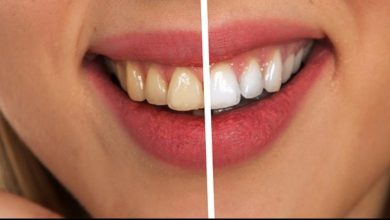Will Tooth Pain Go Away? Discover Fast and Effective Solutions!

Tooth pain will not go away on its own and requires prompt dental treatment for relief. Dental care is essential to address the underlying cause of tooth pain and prevent it from progressing or causing further complications.
Seeing a dentist as soon as possible is crucial to alleviate tooth pain and ensure proper oral health. Tooth pain can be an incredibly uncomfortable and distressing experience that can disrupt daily activities and cause significant discomfort. Whether it’s a persistent ache, sharp pain when biting, or sensitivity to temperature, tooth pain is often a signal that something is wrong and requires attention.
Many people may wonder if tooth pain will go away on its own or if it’s necessary to seek dental treatment. In most cases, tooth pain will not resolve without intervention and should not be ignored. This article will explore the reasons why tooth pain requires dental treatment, the potential causes behind it, and the importance of seeking timely professional care to address the issue effectively. Taking proper actions in the early stages can help prevent further damage, relieve the pain, and restore oral health.
Understanding Tooth Pain: Causes And Symptoms
Tooth pain is a common dental problem that can range from mild discomfort to excruciating pain. It can be caused by various factors, and it’s important to identify the underlying cause in order to find the appropriate treatment. Tooth pain is often a result of tooth decay, which occurs when plaque builds up on the teeth and causes them to deteriorate. Other common causes include gum disease, dental abscesses, and teeth grinding. Identifying the symptoms of tooth pain is crucial for prompt intervention. Symptoms may include sharp or throbbing pain, sensitivity to hot or cold temperatures, swelling, and bad breath. If you experience any of these symptoms, it’s essential to consult a dentist for a proper diagnosis and treatment plan.

Credit: www.dsisrael.com
Will Tooth Pain Go Away Naturally?
Tooth pain may subside naturally depending on the cause. It’s important to identify the underlying issue and seek dental treatment for long-lasting pain relief.
Exploring Natural Remedies For Tooth Pain Relief
If you’re experiencing tooth pain, you may be wondering if it will go away naturally. While every situation is unique, there are several home remedies that could help alleviate tooth pain. One effective option is to rinse your mouth with warm saltwater, as it can reduce inflammation and provide temporary relief. Applying a cold compress to the affected area can also numb the pain and reduce swelling.
Lifestyle changes can also make a difference in tooth pain subsiding. Avoiding foods and drinks that are either too hot or too cold can prevent sensitivity. Additionally, improving your oral hygiene routine by brushing twice a day, flossing regularly, and using an antibacterial mouthwash can promote dental health and alleviate discomfort.
Remember, these natural remedies may provide temporary relief, but it’s essential to consult a dentist for a proper diagnosis and treatment. They can identify the root cause of your tooth pain and provide professional guidance for long-term relief.
Fast And Effective Solutions For Tooth Pain
Experiencing tooth pain can be extremely uncomfortable and can affect your day-to-day activities. Fortunately, there are various dental treatments available to provide relief and address the underlying causes of tooth pain.
| Treatment | Description |
| 1. | Root Canal Therapy |
| 2. | Extraction |
| 3. | Filling or Bonding |
| 4. | Tooth Sensitivity Treatment |
| 5. | Gum Disease Treatment |
- Visiting a qualified dentist can help identify the cause of your tooth pain and provide appropriate treatment.
- Root canal therapy can remove the infected pulp and alleviate pain.
- In some cases, tooth extraction may be necessary if the tooth cannot be saved.
- Filling or bonding can repair cavities or damaged teeth.
- Specialized treatments for tooth sensitivity can help reduce discomfort.
- Proper gum disease treatment can address underlying periodontal issues that contribute to tooth pain.
- Over-the-counter pain relievers such as ibuprofen can temporarily alleviate tooth pain.
- Rinsing with warm saltwater can help reduce inflammation and provide relief.
- Applying a cold compress to the affected area can numb the pain temporarily.
- Avoiding chewing on the affected tooth and sticking to soft foods can prevent further irritation.
Remember, while these remedies can provide temporary relief, it is essential to consult a dental professional for a proper diagnosis and long-term solutions to address your tooth pain.
Dental Procedures For Tooth Pain
Tooth pain can be a distressing experience, but fortunately, there are dental procedures available to alleviate the discomfort. Common dental procedures for tooth pain include dental filling and root canal therapy. Dental fillings are used to restore teeth that have been damaged by decay, fractures, or wear. This procedure involves removing the decayed or damaged portion of the tooth and filling it with a durable material, such as composite resin or amalgam. On the other hand, root canal therapy is recommended when the innermost part of the tooth, known as the pulp, becomes inflamed or infected. During this procedure, the infected pulp is removed, and the root canal is cleaned and sealed. In some cases, tooth extraction may be necessary if the tooth is severely damaged and cannot be saved. It is important to consult with a dentist to determine the most appropriate treatment option based on the severity of the tooth pain.
Medications For Tooth Pain Relief
Medications for Tooth Pain Relief
Over-the-counter medications are commonly used to relieve tooth pain. These medications can provide temporary relief until you can visit a dentist. Nonsteroidal anti-inflammatory drugs (NSAIDs) such as ibuprofen can help reduce inflammation and pain. It is important to follow the dosage instructions and precautions on the packaging. Topical oral gels and creams containing benzocaine can also provide numbing relief. However, these should be used sparingly and as directed. For more severe tooth pain, your dentist may prescribe stronger pain medications such as opioids or stronger NSAIDs. It is crucial to use prescription medications as directed by your dentist or healthcare provider, as misuse can have serious consequences. Remember to always consult with your healthcare provider before taking any medication for tooth pain.
Tips for safe and effective medication use
- Read and follow the instructions on the packaging.
- Use the recommended dosage and avoid exceeding the maximum daily limit.
- Take medication with food to help reduce the risk of stomach upset.
- Avoid alcohol consumption while taking medication.
- Do not mix different pain medications without consulting a healthcare provider.
- Store medications in a cool, dry place and out of reach of children.
- If you experience any adverse reactions or side effects, seek medical attention immediately.
Additional Strategies For Tooth Pain Relief
Tooth pain can be relieved with additional strategies such as using a cold compress, rinsing with warm saltwater, and avoiding certain foods and drinks. Although the pain may temporarily subside, it is important to consult a dentist to address the underlying issue and ensure long-term relief.
Alternative therapies can offer relief for tooth pain. Acupuncture, for instance, has been used for centuries to alleviate various types of pain and can be effective in managing toothaches. Herbal remedies, such as clove oil or peppermint oil, can also provide temporary relief by numbing the affected area. Furthermore, practicing good oral hygiene can prevent tooth pain from occurring in the first place. Regularly brushing and flossing your teeth helps remove bacteria and food particles, reducing the risk of tooth decay and subsequent pain. Additionally, avoiding sugary and acidic foods can protect your teeth from potential damage. In cases of persistent or severe tooth pain, it is crucial to consult a dentist to address the root cause and receive appropriate treatment.
Self-care Practices To Prevent Tooth Pain
Implementing self-care practices can aid in preventing tooth pain. These include:
- Brushing your teeth at least twice a day with fluoride toothpaste.
- Flossing daily to remove plaque and food particles from between the teeth.
- Using mouthwash to kill bacteria and freshen breath.
- Limiting sugary and acidic foods and beverages.
- Drinking plenty of water to keep the mouth hydrated and wash away debris.
- Using a soft-bristled toothbrush and replacing it every three to four months.
- Visiting your dentist regularly for check-ups and professional cleanings.
By incorporating these practices into your oral hygiene routine, you can minimize the risk of tooth pain and maintain a healthy smile.
Frequently Asked Questions For Will Tooth Pain Go Away
How Long Does It Take For Tooth Pain To Go Away?
Tooth pain can typically subside within a few days to a week, depending on the cause. However, it is advisable to consult a dentist for an accurate diagnosis and appropriate treatment.
How Do I Know If My Toothache Is Serious?
To determine if your toothache is serious, look out for persistent pain, swelling, or fever. Consult a dentist to diagnose the underlying cause and receive proper treatment.
What Makes Bad Tooth Pain Go Away?
To alleviate bad tooth pain, consult a dentist for proper diagnosis and treatment. Over-the-counter pain relievers can provide temporary relief until you can see a professional. Proper oral hygiene practices, such as regular brushing and flossing, can also help prevent toothaches.
How Long Does Tooth Pain Typically Last?
Tooth pain can last anywhere from a couple of days to a few weeks, depending on the cause and severity of the issue. It is important to consult a dentist if the pain persists for more than a few days to determine the underlying cause and receive appropriate treatment.
Conclusion
Tooth pain can be a distressing experience, but it is important to seek professional dental care to address the underlying issue. Ignoring tooth pain can lead to more severe oral health problems. Proper diagnosis and treatment are crucial for ensuring long-term relief.
Remember, prevention is better than cure, so maintaining good oral hygiene and regularly visiting the dentist can help prevent tooth pain before it starts. Trust your oral health to the professionals and say goodbye to tooth pain.





